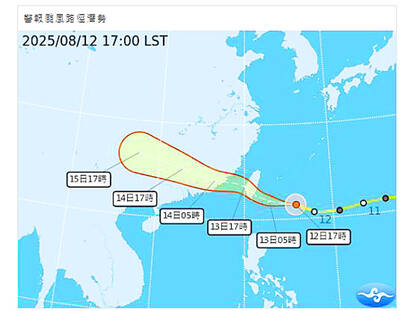The result of a recent poll that was conducted by the US-based Gallup Organization showed that more than 60 percent of the interviewees in five countries see Taiwan as a sovereign country, and also that most people view it more favorably than China.
The Government Information Office (GIO) commissioned Gallup to study the country's image among opinion leaders and the general public in the US, Japan, France, Germany and the UK.
The result of the study showed that Japanese favor Taiwan over China by a margin of almost two to one, slightly more than the gap recorded for Americans.
The result also showed that the three European countries also favor Taiwan over its rival, but did not give specifics.
The survey showed that the strongest impressions for most interviewees in all five countries about Taiwan were of the country's advanced technology, its strong economy, "delicious" food and natural attractions.
As for the strongest impression about Taiwanese people, most interviewees felt that Taiwanese people were hard-working, friendly as well as peace-loving.
Taiwan has been trying for years to regain admission to the UN, the World Health Organization (WHO) and other international organizations, but Chinese pressure has convinced most countries not to support it.
Still, the survey showed that the majority of interviewees supported Taiwan's application to the UN, while more than 72 percent supported Taiwan's joining the WHO.
The Gallup survey, which has a margin of error of 3 percent, was conducted by telephone in May and June. Pollsters interviewed 1,500 adults from the general public and 200 opinion leaders in each of the five countries.
"The government should reflect how to translate these positive attitudes toward Taiwan into action," said Lo Chih-cheng (
"It is a sign that China's campaign to undermine the country's legitimacy is not working at all," said GIO Minister Pasuya Yao (
"The study also showed us that more than 60 percent of the respondents in the five countries see Taiwan and China as two separate sovereign countries," he said.
Taiwanese academics said that the survey's results make it imperative for the government to develop a concrete strategy to take advantage of the support it enjoys.

GET TO SAFETY: Authorities were scrambling to evacuate nearly 700 people in Hualien County to prepare for overflow from a natural dam formed by a previous typhoon Typhoon Podul yesterday intensified and accelerated as it neared Taiwan, with the impact expected to be felt overnight, the Central Weather Administration (CWA) said, while the Directorate-General of Personnel Administration announced that schools and government offices in most areas of southern and eastern Taiwan would be closed today. The affected regions are Tainan, Kaohsiung and Chiayi City, and Yunlin, Chiayi, Pingtung, Hualien and Taitung counties, as well as the outlying Penghu County. As of 10pm last night, the storm was about 370km east-southeast of Taitung County, moving west-northwest at 27kph, CWA data showed. With a radius of 120km, Podul is carrying maximum sustained

Tropical Storm Podul strengthened into a typhoon at 8pm yesterday, the Central Weather Administration (CWA) said, with a sea warning to be issued late last night or early this morning. As of 8pm, the typhoon was 1,020km east of Oluanpi (鵝鑾鼻), Taiwan’s southernmost tip, moving west at 23kph. The storm carried maximum sustained winds of 119kph and gusts reaching 155kph, the CWA said. Based on the tropical storm’s trajectory, a land warning could be issued any time from midday today, it added. CWA forecaster Chang Chun-yao (張竣堯) said Podul is a fast-moving storm that is forecast to bring its heaviest rainfall and strongest

TRAJECTORY: The severe tropical storm is predicted to be closest to Taiwan on Wednesday and Thursday, and would influence the nation to varying degrees, a forecaster said The Central Weather Administration (CWA) yesterday said it would likely issue a sea warning for Tropical Storm Podul tomorrow morning and a land warning that evening at the earliest. CWA forecaster Lin Ting-yi (林定宜) said the severe tropical storm is predicted to be closest to Taiwan on Wednesday and Thursday. As of 2pm yesterday, the storm was moving west at 21kph and packing sustained winds of 108kph and gusts of up to 136.8kph, the CWA said. Lin said that the tropical storm was about 1,710km east of Oluanpi (鵝鑾鼻), Taiwan’s southernmost tip, with two possible trajectories over the next one

TALKS CONTINUE: Although an agreement has not been reached with Washington, lowering the tariff from 32 percent to 20 percent is still progress, the vice premier said Taiwan would strive for a better US tariff rate in negotiations, with the goal being not just lowering the current 20-percent tariff rate, but also securing an exemption from tariff stacking, Vice Premier Cheng Li-chiun (鄭麗君) said yesterday. Cheng made the remarks at a news conference at the Executive Yuan explaining the new US tariffs and the government’s plans for supporting affected industries. US President Donald Trump on July 31 announced a new tariff rate of 20 percent on Taiwan’s exports to the US starting on Thursday last week, and the Office of Trade Negotiations on Friday confirmed that it